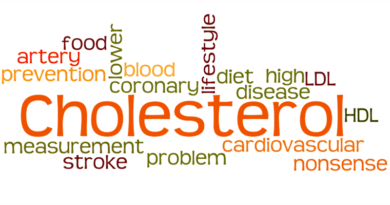Does skipping breakfast increase the risk of Type 2 Diabetes?
Introduction
One of my lovely supporters, Andrew Martin, sent me a study from November 2018 which I missed (Ref 1). The study was by Ballon et al and it was called “Breakfast Skipping Is Associated with Increased Risk of Type 2 Diabetes among Adults: A Systematic Review and Meta-Analysis of Prospective Cohort Studies.” On the plus side – this was a systematic review and meta-analysis – which is the top type of study on the evidence pyramid. On the down side – given that breakfast is all too often sugary cereal, it made no sense that skipping this would increase the risk of Type 2 Diabetes.
Ballon et al reviewed 6 studies, with 96,175 participants and 4,935 cases of Type 2 Diabetes (T2D). They found that, after adjustment for BMI, people who ever skipped breakfast had a 22% greater risk of T2D than people who never skipped breakfast. (Someone who eats breakfast six days a week would count as an “ever skipped”; someone who eats breakfast seven days a week would count as a “never skipped” (Ref 2). Only four of the six studies contributed to the finding with BMI adjustment. These studies were Mekary et al (2012) (Ref 3); Mekary et al (2013) (Ref 4); Odegaard et al (2013) (Ref 5) and Uemura et al (2015) (Ref 6).
I then remembered a book I read in 2016, by Professor Terence Kealey, with the provocative title “Breakfast is a Dangerous Meal.” Professor Kealey wrote the book a few years after having been diagnosed with Type 2 Diabetes (in May 2010) and so he would no doubt be interested in Ballon et al’s study. He would also, no doubt, dismiss it out of hand.
I searched pubmed, the academic database, for “breakfast skipping” and there were 578 articles involving humans. Applying the criteria “meta-analysis” or “systematic review” brought this down to 13 papers. Applying the criteria “adults” reduced the number of papers to four, one of which was about breakfast skipping and Type 2 Diabetes.
This database search informed me that the Ballon et al study was not new. The most relevant pubmed paper was from 2015 by Bi et al, which was called “Breakfast skipping and the risk of Type 2 Diabetes: a meta-analysis of observational studies.” Bi et al found a 21% greater risk – almost identical to Ballon et al – also based on 4 studies. It turned out that three of the four studies were the same in Ballon et al and Bi et al (Ref 7). Bi et al included Sugimori 1998 (Ref 8) and excluded Uemura et al (2015). (Interestingly, Bi et al also examined case control studies and found no association between breakfast skipping and T2D).
One study being different made no difference to the results. It turned out that the four studies were really two studies, as the two studies that dominated the meta-analysis were the Mekary et al studies. The first was published in 2012 and it was an examination of 29,206 American men from the Health Professionals Follow-up Study. The second was published in 2013 and it was an examination of 46,289 American women from the Nurses’ Health Study. These are the two populations that Harvard School of Public Health have been interrogating for years to publish endless epidemiological papers. Both these papers were Harvard productions and they featured Walter Willett and Frank Hu as senior authors on the papers.
The characteristics of breakfast skippers vs. breakfast eaters
The rest of this article is available to site subscribers, who get access to all articles plus a weekly newsletter.
To continue reading, please login below or sign up for a subscription. Thank you.




